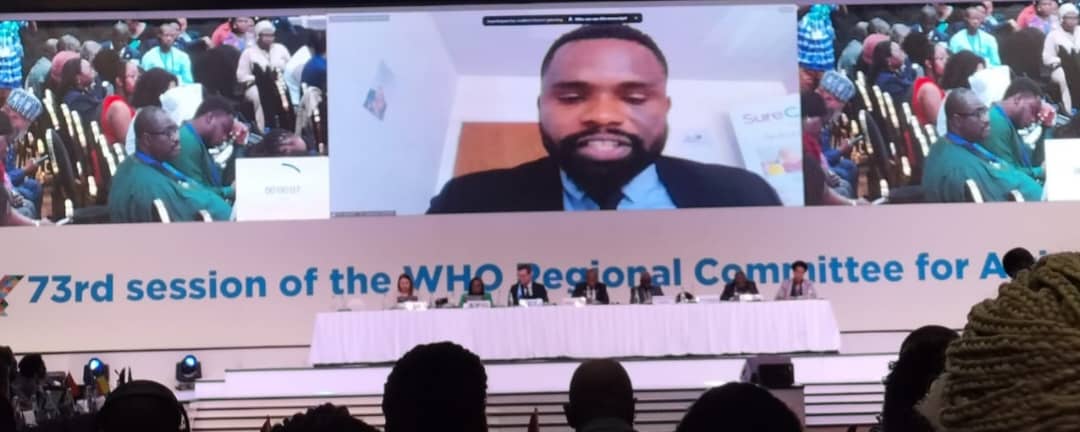Comprehensive implementation of GAAP in Africa will facilitate attainment of Universal Health Coverage (UHC)
On the 30th August 2023 in Botswana, the West African Alcohol Policy Alliance (WAAPA), Southern African Alcohol Policy Alliance, East African Alcohol Policy Alliance (EAAPA) and the Global Alcohol Policy Alliance (GAPA) at the 73rd World Health Organization (WHO) Regional Committee Meeting for Africa supported the adoption of the ‘Framework for Sustaining Resilient Health Systems to Achieve Universal Health Coverage and Promote Health Security, 2023-2030 in the WHO African Region’.
Dr. Franklin C. Umenza, Board Chair of West African Alcohol Policy Alliance, stated that in 2019, the United Nations General Assembly High Level Meeting on the Universal Health Coverage (UHC) reaffirmed that health is a precondition for and an outcome and indicator of the social, economic and environmental dimension of sustainable development. Inequalities continue to be a fundamental challenge for Universal Health Coverage (UHC) despite national progress on health service coverage.
Dr. Umenza noted that according to the UN interagency estimates, the African Region share of Non Communicable Diseases (NCD) attributable mortality increased from 24.2% of total deaths in 2000 to 37.1% in 2019, as stated by WHO.
The introduction and implementation of alcohol control policies and laws; regulating the production and safe supply of alcoholic beverages, price and tax measures, ban on advertising and provision of rehabilitation services on alcohol disorder are among the recommended measures. Enforcing the above measures by governments will protect health, make populations stronger and more productive and in addition save on health-care cost.
On behalf of the West African Alcohol Policy Alliance (WAAPA), Southern African Alcohol Policy Alliance, East African Alcohol Policy Alliance (EAAPA) and the Global Alcohol Policy Alliance (GAPA), he emphasized that, the comprehensive implementation of the ‘Framework for Implementing the Global Alcohol Action Plan 2022-2030 in the WHO African Region’ will facilitate the attainment of the vision of this Universal Health Coverage Framework of ‘all people in the WHO African Region enjoying good health and well-being as a fundamental human right’.
In conclusion, he called on Member States to project the implementation of this Framework from the alcohol industry and other commercial vested interest.




